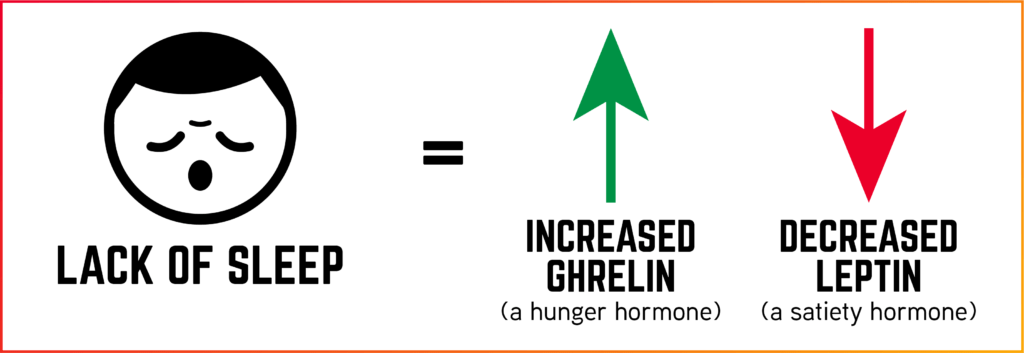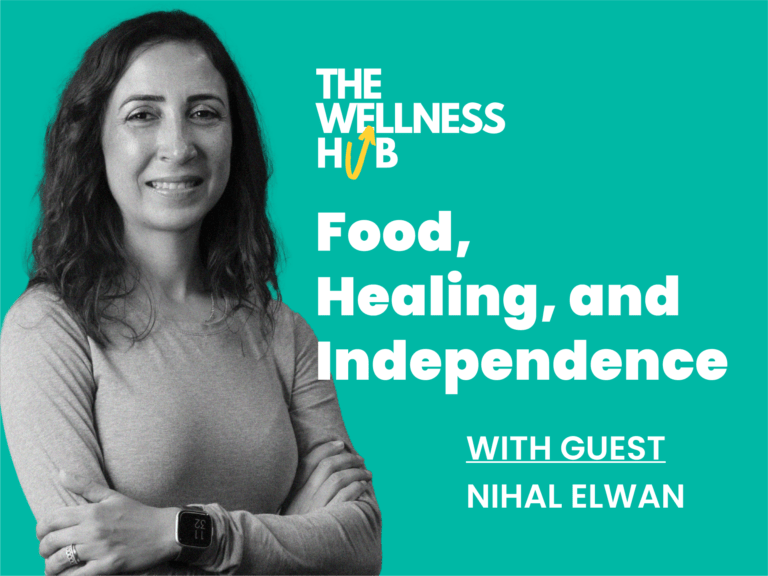Have you ever felt hungrier than usual or noticed a strange unhealthy craving after a night of poor sleep? If so you’re not alone and these cravings are not unfounded.
Many may think of sleep and diet as completely independent aspects of health. But the truth is the two have more in common than it might seem at first glance.
The metabolic processes that our bodies go through are all tightly intertwined; a change in one can start a chain reaction that affects the entire system. Poor sleep is directly linked to changes in appetite and diet. Understanding how these changes work can help you build routines and habits to support your overall health.
Let’s take a look into how poor sleep can affect our eating habits.
What happens to your body when you sleep?
There is a wide range of important physiological processes that happen while we sleep. In fact, some of the systems that keep us alive are tightly connected to our sleep.
Some metabolic processes such as tissue regeneration cannot happen without adequate sleep, while other processes like hormone balance and immune responses become hindered by chronic lack of sleep or poor sleep quality.
The complexities of sleep processes and their effects on health are broad and involve multiple physiological systems. But to understand what exactly sleep has to do with diet specifically, we can focus on a specific purpose of sleep which is hormone regulation.
Sleep and hormone regulation
Our sleep-wake cycles and hormone secretion and metabolism are tightly intertwined and nearly impossible to look at separately.
The length, quality, and regularity of sleep can affect the ways in which our bodies secrete and interact with important hormones, including human growth hormone (GH), cortisol, melatonin, insulin, and hunger-related hormones leptin and ghrelin (which we will focus on in this article).
Hormones that affect huger
Three of the main hormones that are directly related to our eating habits, cravings, and food preferences are insulin, leptin, and ghrelin. The three have a strong influence on how our bodies can maintain a proper energy balance to function optimally. Let’s take a deeper look into each of these key hormones and their functions:
Insulin
Insulin is a hormone that is secreted by the pancreas. it is in charge of regulating the level of blood glucose (sugar) in the bloodstream.
When we eat, our body breaks down carbohydrates into glucose in order to use these molecules to produce energy. Without this process, we would not be able to complete everyday tasks or even have the necessary energy for our bodies to operate.
The breakdown of carbohydrates allows glucose to quickly be absorbed into the bloodstream to be available for either immediate use or to be stored for later. When a surge in blood sugar level occurs (normally after a carb-heavy meal) insulin is quickly dispatched by the pancreas to help use glucose for energy and take any surplus to be stored within the muscle, fat, and liver tissues as glycogen. In healthy individuals this keeps blood sugar levels steady within a healthy margin.
Leptin
Leptin is a hunger regulating hormone that plays a role in supporting energy balance in the body. It regulates weight and energy metabolism by inhibiting hunger. When leptin levels are high appetite drops. This is the hormone that is in charge of sending the brain a signal of satiation after a meal.
The effects of leptin are most evident when its levels drop. When someone loses a significant amount of weight for instance, leptin levels drop, increasing the feeling of hunger. Leptin does this in order to maintain the weight that the body is used to managing, therefore maintaining energy balance.
Ghrelin
Ghrelin basically serves the opposite purpose from leptin: It is the hunger hormone.
This hormone is secreted when we are running low on energy, telling the brain that we are most likely in need of a snack. Higher levels of ghrelin increase appetite and the urge to eat. Once this need has been satiated, ghrelin levels drop. This drop decreases hunger.
Ghrelin also has an array of other functions including the decrease of muscle atrophy, it regulates bone formation, and can also regulate glucose balance in the blood by inhibiting the release of insulin. [1]

Hunger hormones and sleep
Studies have observed that both ghrelin and leptin naturally rise during sleep, however, leptin has a far more significant increase which can explain why during normal sleep patterns we don’t wake up in the middle of the night due to hunger. [2]
During normal sleep, leptin tends to be higher, keeping appetite under control. As we wake up leptin starts to decrease while ghrelin slowly rises to signal hunger. However, when sleep is reduced, ghrelin tends to increase while leptin levels remain low.
A 2004 study observed ghrelin and leptin levels in 12 young men during controlled sleep deprivation. This study observed that after two nights of reduced sleep (4 hours per night), leptin levels dropped by 8% and ghrelin was elevated by 28%. [3]
The effects of sleep on unhealthy cravings
After seeing the effects of sleep deprivation in the behaviour of hunger regulating hormones, it comes as no surprise that sleep can play a big role in overall diet and weight loss efforts.
The disregulation of gherlin and leptin caused by reduced sleep can lead to an increased caloric intake. After controlled sleep reduction, study participants have reported higher cravings for calorie dense foods such as sweets, starches, or foods high in fats and sugars. [4]
Another study with the Wisconsin Sleep Cohort showed similar results and in its long-term observations found that individuals with decreased sleep had higher BMI (body mass index). [5]
The bottom line: Is your lack of sleep affecting your diet?
Overall it seems that proper sleep is a key factor in regulating energy and metabolic processes in the body. Because of this, any efforts for weight loss or specific diets can face an extra layer of challenge when paired with poor sleeping habits.
When exposed to a lack of sleep we are biologically predisposed to crave unhealthy foods, or at the very least foods that are higher in calories. We are also prone to feel a stronger drive to eat and have disorganized levels of hunger hormones circulating through the nervous system.
Whether you are adhering to a specific diet — either in the efforts to lose weight or just to stick to healthier food choices — and are finding it increasingly difficult to meet your goals, taking a look at your overall sleeping habits and patterns may be a good place to start. Looking to increase your quality of sleep and get your body back in balance? Check out our article on tips for better sleep.





